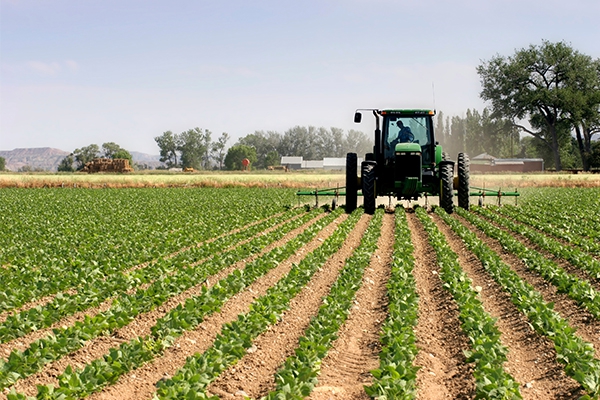
By Fortune Abang
The Civil Society Group for Good Governance (CSGGG) says the National Fadama Development Project (NFDP) will help tackle issues around poverty in Nigeria.
The President of CSGGG, Mr Ogakwu Dominic, made this known while briefing newsmen on Thursday in Abuja.
The term Fadama is a Hausa name for irrigable land, usually low-lying plains under laid by shallow planes along major rivers.
He said that the need to reassure Nigerian farmers of potential of the project had become important, to promote confidence building in ongoing fights against poverty and to discourage false narratives.
Ogakwu said: The public domain has been inundated with all sorts of false narratives about the project; ordinary Nigerians have been left in dilemma about actual state of the nation.
Such fake news is currently threatening our polity, if this ugly trend is not nipped in the bud early enough, it could obstruct the unity currently enjoyed in the country.
Therefore, CSGGGs reaffirmation to fight against this fake news, balance the narrative and set records straight through investigative and objective reportage of activities of Fadama project.
According to him, the Fadama project worth million was established in 1990 and is in its third phase being implemented in 36 states, and the Federal Capital Territory (FCT).
He described Fadama as World Bank Project which started in 1990 with the first of its series designed to bring basic irrigation and productive support to farmers in selected Nigerian states.
Furthermore, he noted that Fadama-II started in 2003 with groundbreaking Community-Driven Development (CDD) model in Nigerias rural areas and helping to institutionalise local stakeholder engagement in community decision making.
Fadama-III interventions began in 2009; the Projects geographical scope was expanded and became well-known National Brand of Local Agricultural Development Project.
The Fadama-III Project which was originally approved by the Board on June 1, 2008, with credit facility of US million, became effective on March 23, 2009, and closed by Dec. 31, 2013.
Despite successes recorded, government saw a lot still needs to be done if rural farmers are to benefit from this World Bank scheme and requested for additional financing for special interventions.
The World Bank responded to the request by providing additional financing to the Fadama-III project, to meet the urgency of the Agricultural Transformation Agenda (ATA), he added.
He said the additional financing used business approach model that support cluster of farmers through off-taking arrangements in six selected states producing Cassava, Rice, Sorghum and Tomato value-chains.
He listed Anambra, Enugu, Kano, Kogi, Lagos and Niger as the six states, saying additional 28 states including the Federal Capital Territory to had benefitted from the project having met set criteria.
These achievements were recorded due to the adoption of Good Agronomic Practices (GAP), capacity building of farmers, engagement of Advisory Services and Inputs support Consultants (ASIC), linkages to off-takers.
Again, in 2019, cassava farmers under Fadama-III, AF I and AF II realised more than N20.6 billion as revenue and a gross margin of N13 billion.
In the same vein, rice, sorghum and tomato farmers realised a gross margin of N104.4 billion, N60.9 billion and N19.2 billion, respectively, during the projects life span.
Hence, the Fadama-III has contributed substantially to the Gross Domestic Product (GDP) and Gross Domestic Income (GDI) of Nigeria from 2015 to 2019, Dominic stressed.
Source: NAN News